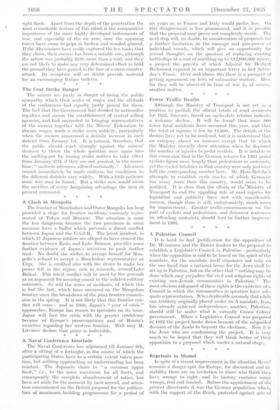A Clash in Mongolia The frontier of Manchukuo and Outer
Mongolia has long provided a stage for frontier incidents variously repre- sented at Tokyo and Moscow. The situation is none the less dangerous because the two provinces in some measure form a buffer which prevents a direct conflict between Japan and the U.S.S.R. The latest incident, in which 27 Japanese soldiers are alleged to have crossed the frontier between Kedu and Lake Buirnor, provides some further evidence of Japan's intention to push farther west. No doubt she wishes to avenge herself for Mon- golia's refusal to accept a Manchukuo representative at Urga. She is credited also with the desire to make her power felt in the region, rich in minerals, around Lake Baikal. This latest conflict will be used by the generals as an argument for securing assent to the inflated military estimates. So will the series of incidents, of which this is but the last, which have occurred on the Mongolian frontier since the breakdown of the joint frontier commis- sion in the spring. It is not likely that this frontier con- flict will cease : and as 1936, Japan's "year of crisis" approaches, Europe has reason to gpeculate on its issue. Japan will face the crisis with the greater confidence because - of Europe's preoccupations and of Russia's anxieties regarding her western frontier. Well may M. Litvinov declare that peace is indivisible.


































 Previous page
Previous page